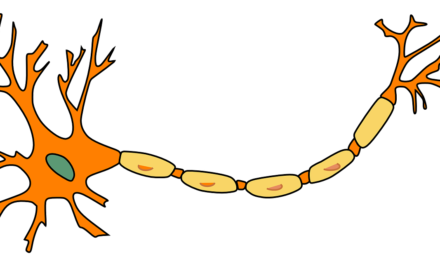Cancer is a complex and multifaceted disease that requires a comprehensive approach to treatment. In recent years, steroids have emerged as an important component of cancer therapy, providing valuable support in managing symptoms and improving patient outcomes. This article explores the role of steroids in cancer treatment, focusing on the types of cancers that benefit from their use. Additionally, we will shed light on the advancements and positive developments in the use of steroids in the United Kingdom.
Steroids in Cancer Treatment:
Steroids, such as corticosteroids, are synthetic drugs that mimic the effects of hormones produced naturally in the body. While commonly associated with their anti-inflammatory properties, steroids play a vital role in cancer treatment beyond their traditional use. In the context of cancer, steroids serve as a supportive therapy, aiding in the management of treatment side effects and improving the overall quality of life.
Cancers Treated with Steroids:
- Breast Cancer: Steroids are often prescribed to breast cancer patients to alleviate the side effects of chemotherapy, radiation, and hormonal therapies. They help reduce inflammation, minimize allergic reactions, and manage fluid retention.
- Leukemia: Certain types of leukemia, such as acute lymphoblastic leukemia (ALL) and acute myeloid leukemia (AML), can be treated with steroids. These medications help control the overproduction of white blood cells and suppress the immune system response associated with leukemia.
- Lymphoma: Steroids play a significant role in the treatment of lymphoma, a cancer that affects the lymphatic system. They are commonly used in combination with chemotherapy to reduce inflammation, decrease swelling, and alleviate pain.
- Multiple Myeloma: Steroids, particularly dexamethasone, are frequently included in treatment regimens for multiple myeloma. They enhance the effectiveness of chemotherapy, reduce the risk of allergic reactions, and help manage symptoms like bone pain.
- Brain Tumors: Steroids are often prescribed to patients with brain tumors to reduce swelling and inflammation around the tumor site. This can help alleviate symptoms such as headaches and improve overall neurological function.
- Lung Cancer: Steroids may be utilized in the treatment of lung cancer to manage symptoms and improve lung function. They can help reduce inflammation in the airways, making breathing easier for patients undergoing chemotherapy or radiation therapy.
- Prostate Cancer: Steroids can be incorporated into the treatment plan for advanced prostate cancer. They are used to manage symptoms, such as bone pain, and to counteract side effects from hormonal therapies.
Steroids and the UK:
In the United Kingdom, the use of steroids in cancer treatment follows established protocols and guidelines. These medications are readily available and accessible to patients across the country. The integration of steroids into cancer treatment plans aims to optimize patient care and improve outcomes.
Moreover, ongoing research in the UK focuses on expanding the understanding of steroid mechanisms and their potential applications in cancer treatment. Researchers are exploring novel ways to harness the positive effects of steroids, leading to promising developments in the field.
Conclusion:
Steroids have proven to be valuable allies in the fight against cancer, providing much-needed support in managing treatment side effects and enhancing overall patient well-being. From breast cancer to brain tumors, steroids have found their place in the treatment protocols of various cancer types. In the United Kingdom, these medications are an integral part of cancer therapy, ensuring that patients receive comprehensive care to achieve the best possible outcomes. With continued advancements and research, the future holds even greater promise for the integration of steroids in cancer treatment, offering hope and improved quality of life to those affected by this devastating disease.
FAQs
Q: What role do steroids play in cancer treatment?
A: Steroids in cancer treatment serve as a supportive therapy, helping manage treatment side effects and improving the overall quality of life for patients.
Q: Which types of cancer can benefit from the use of steroids?
A: Several types of cancer can be treated with steroids, including breast cancer, leukemia, lymphoma, multiple myeloma, brain tumors, lung cancer, and prostate cancer.
Q: How are steroids used in breast cancer treatment?
A: Steroids are often prescribed to breast cancer patients to alleviate the side effects of chemotherapy, radiation, and hormonal therapies, such as reducing inflammation and managing fluid retention.
Q: What is the role of steroids in leukemia treatment?
A: Steroids are used in the treatment of certain types of leukemia, such as acute lymphoblastic leukemia (ALL) and acute myeloid leukemia (AML), to control the overproduction of white blood cells and suppress the immune system response associated with the disease.
Q: How are steroids incorporated into lymphoma treatment?
A: Steroids are commonly used in combination with chemotherapy for lymphoma treatment. They help reduce inflammation, decrease swelling, and alleviate pain associated with the disease.
Q: In what way do steroids contribute to multiple myeloma treatment?
A: Steroids, particularly dexamethasone, are frequently included in multiple myeloma treatment regimens. They enhance the effectiveness of chemotherapy, reduce the risk of allergic reactions, and help manage symptoms like bone pain.
Q: How are steroids used in the treatment of brain tumors?
A: Steroids are often prescribed to patients with brain tumors to reduce swelling and inflammation around the tumor site. This can help alleviate symptoms such as headaches and improve overall neurological function.
Q: What is the role of steroids in lung cancer treatment?
A: Steroids may be utilized in the treatment of lung cancer to manage symptoms and improve lung function. They can help reduce inflammation in the airways, making breathing easier for patients undergoing chemotherapy or radiation therapy.
Q: How do steroids contribute to the treatment of prostate cancer?
A: Steroids can be incorporated into the treatment plan for advanced prostate cancer. They are used to manage symptoms, such as bone pain, and to counteract side effects from hormonal therapies.
Q: What is the availability of steroids in the UK for cancer treatment?
A: Steroids are readily available and accessible to cancer patients in the United Kingdom, ensuring comprehensive care and support throughout their treatment journey.
Q: What ongoing research is being conducted regarding steroids and cancer treatment in the UK?
A: Ongoing research in the UK focuses on expanding the understanding of steroid mechanisms and their potential applications in cancer treatment. Researchers are exploring novel ways to utilize steroids, leading to promising developments in the field.
Author

Dr. Aditya K. Sharma
I am Dr. Aditya Sharma, a dedicated urologist specializing in kidney transplants and advanced urological surgeries. My career is driven by a passion for delivering exceptional care and pioneering surgical techniques. Outside the operating room, I have a keen interest in studying the effects of anabolic steroids on bodybuilding, seeking to understand the fine line between enhancing performance and maintaining health.








